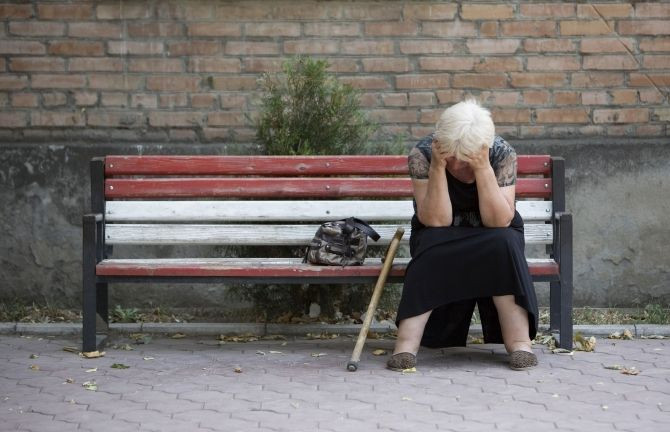Loneliness Disrupts Immune System: Study Says

Being lonely can have significant effect on a person's immune response which in turn can lead to a risk of vulnerabilities to many health complications, says a new study.
When compared to people who had more social connections, lonely people produced more inflammation-related proteins and also showed signs of herpes virus reactivation, according to a press release. Chronic inflammation is linked to many health complications like heart disease, diabetes type-2, arthritis etc. Also, these people can suffer from frailty and functional decline.
According to a related study in the journal Archives of Internal Medicine, a person's level of loneliness may predict the chances of the person getting serious health complications in the future.
Stress is known to be associated with reactivation of latent herpes virus. Thus, finding the same response in lonely folk shows that disconnect from social contacts is causing stress that is in turn disrupting the immune response.
"It is clear from previous research that poor-quality relationships are linked to a number of health problems, including premature mortality and all sorts of other very serious health conditions. And people who are lonely clearly feel like they are in poor-quality relationships," said Lisa Jaremka, a postdoctoral fellow at the Institute for Behavioral Medicine Research at Ohio State University and lead author of the study. She presented her study at the Society for Personality and Social Psychology annual meeting in New Orleans.
The study included 200 breast cancer survivors who were around 51 years of age. The participants had completed treatment for breast cancer for between two months and three years. Their blood samples were drawn and analyzed for the presence of antibodies against Epstein-Barr virus and cytomegalovirus- type of herpes virus that affect many Americans.
These viruses don't produce any disease in almost half of all infected people. In the body, these viruses can remain dormant for long and can be reactivated under certain conditions. Although, not too dangerous, their reactivation shows that something is wrong in the body.
Study results showed that lonely people had higher levels of antibodies against cytomegalovirus along with higher fatigue, stress and depression than people who weren't lonely. The level of loneliness was measured using the UCLA Loneliness Scale.
Additional tests on the same group of participants showed that they had high levels of proteins that are associated with inflammation like interleukin-6, or IL-6. This trend remained even when the researchers accounted for other factors like sleep, age, health etc.
"We saw consistency in the sense that more lonely people in both studies had more inflammation than less lonely people," Jaremka added, according to the press release. "It's also important to remember the flip side, which is that people who feel very socially connected are experiencing more positive outcomes."



























